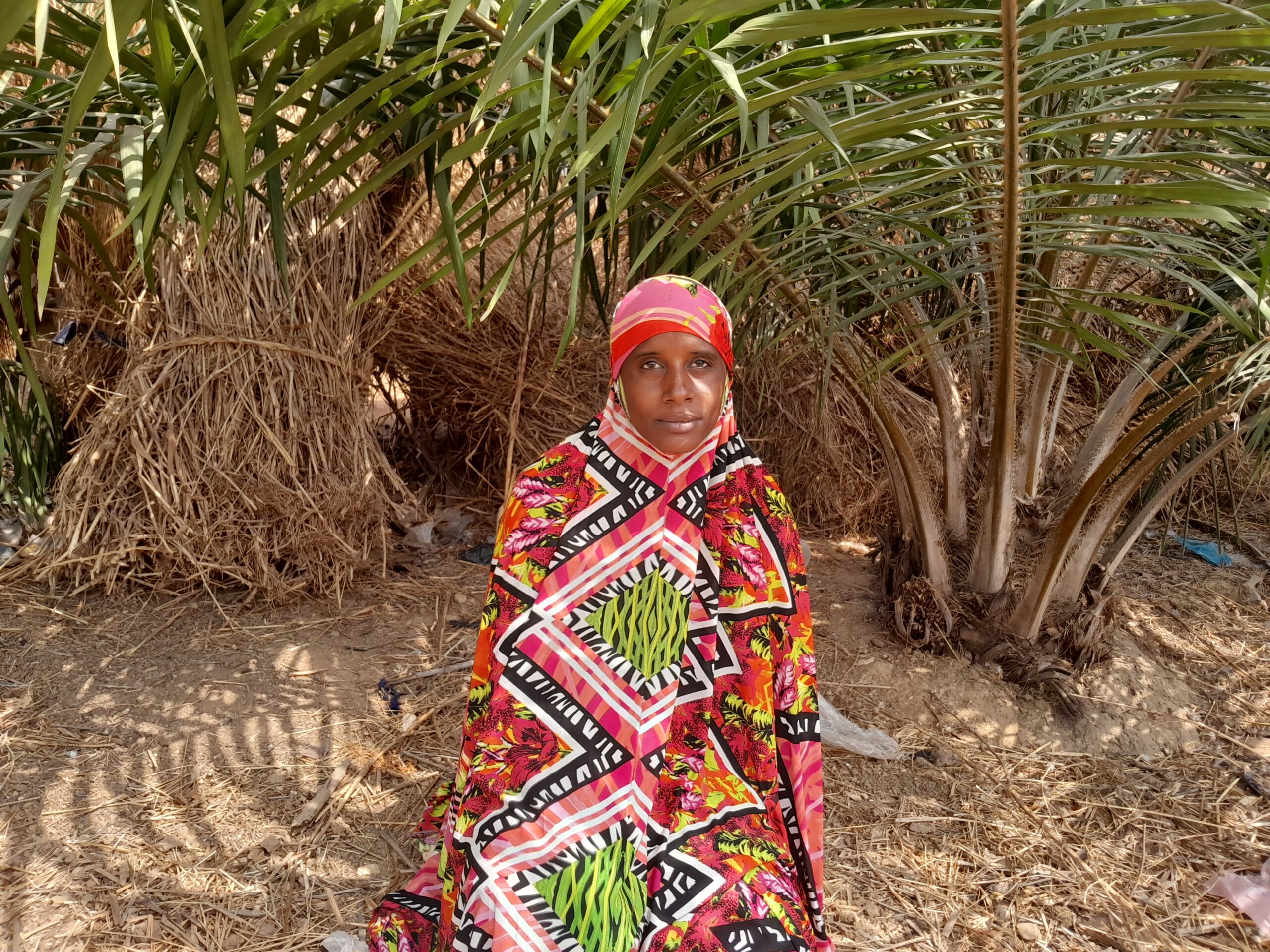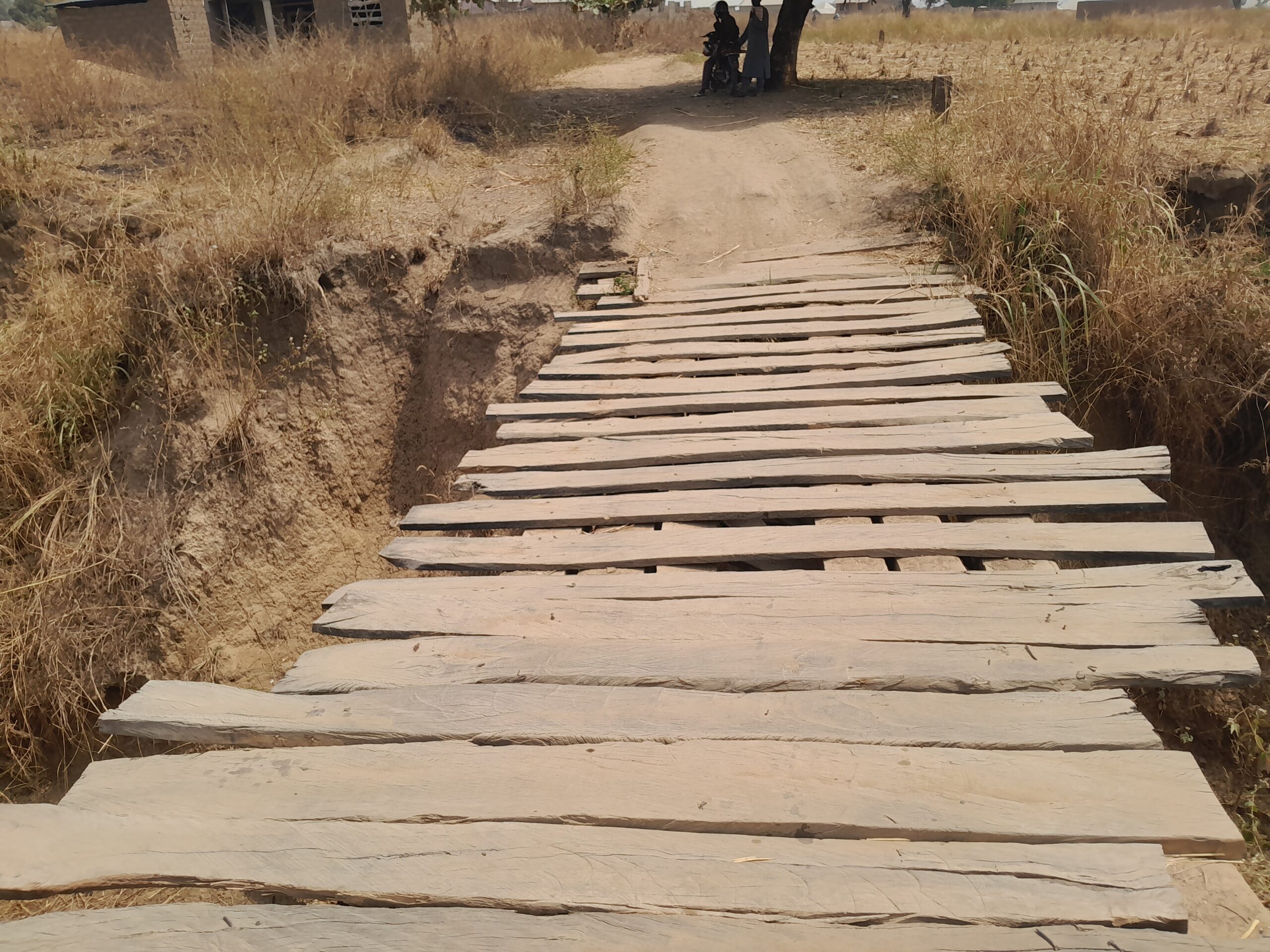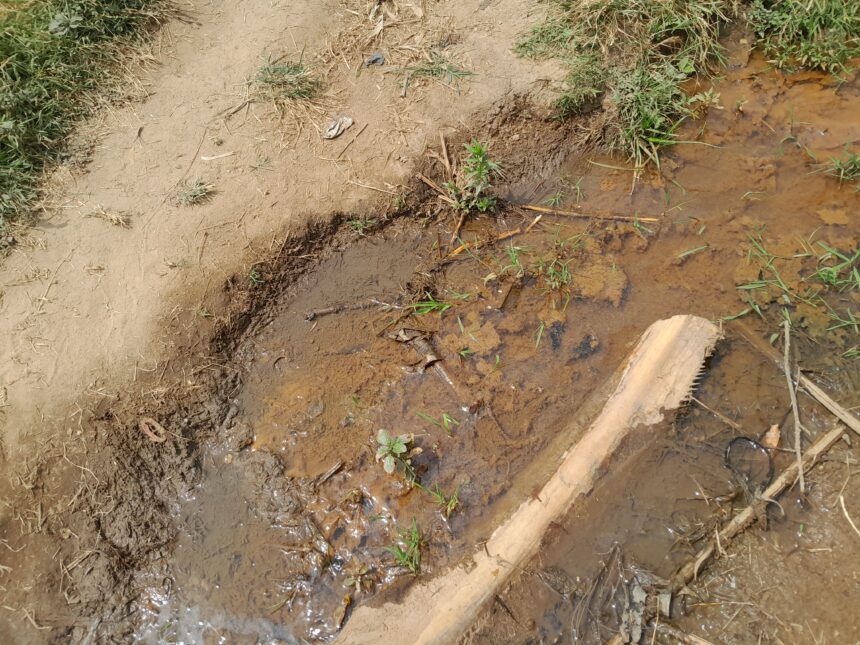It was past noon on a sweltering Monday in January 2024. Suleiman Muhammed sat under a mango tree that stood adjacent to his hut. His face was etched with sadness as he compared his earlier bountiful harvests with the shrinking harvests of the past year.
In the previous farming season, during the summer of 2023, Muhammed planted a good number of seed crops, from which he hoped to harvest great bags of maize. However, the crops only yielded 3 bags of maize after the harvest in December 2023.
“The three bags cannot sustain me till another farming season. I was expecting around 10 bags, which I can eat with my family and also gain a good profit after selling some parts of it at the market,” Muhammed narrated.
He finally decided to keep two bags for his family and sell one to buy other food ingredients. “I know in a few weeks we will consume all this maize, and then we will have to look for other options,” the 43-year-old said.
As the harmattan ripped through farmlands, taking an adverse toll on vegetation, Mohammed couldn’t afford the cost of irrigation farming.
Muhammed’s story is only an example of a widespread crisis in Garin Buba, a community nestled in the Gashaka local government area of Nigeria’s Taraba State. Husseina Lawan is one of the many women battling water scarcity in Garin Buba. The 30-year-old had been piling a few pieces of sweet potatoes for lunch, on the same hot Monday afternoon, when her mind drifted to the water struggles.
“Sometimes, we could spend hours at the stream, just waiting for the water to come up, and even with that, there are days when we hardly fill our buckets,” she said.
Husseina informed Prime Progress that the drought was often worse between March and April because of the dry season. During this time, parents and children would queue at the stream from morning to afternoon just to fetch one or two buckets of water.

Water scarcity
The residents of the Garin Buba community, who are mostly farmers and herders, are not alone in this struggle. This problem is also prevalent in other communities in Taraba State, where access to potable water seems like a luxury.
While rain could provide some respite for these farmers, it is hardly frequent during the dry season. Hence, the scarcity of water in Garin Buba is a nightmare for farmers like Mohammed.
Although some statistics show a positive outlook of the population of Nigerians with access to basic water services, another survey brings to light a rather bleak outlook, showing that only 10% of Nigeria’s population, exceeding 200 million, actually enjoys access to comprehensive basic water, sanitation, and hygiene services.
In addition, people living in rural areas are more disadvantaged than those living in urban areas, as Nigeria’s northeast continues to grapple with pressing humanitarian and social problems.
Today, herders like Muhammed and Husseina drink from the same water source as their cattle. This does not conform to the World Health Organization’s guidelines for drinking water quality, as experts have reckoned.
“The little water we can access here is not even clean, but we still have to manage it since we have no alternative,” Husseina explained
Upon visiting the community, this reporter witnessed a troubling scenario of acute water scarcity. The residents, with a severe lack of access to clean water, encountered persistent difficulties in meeting their necessities.
Across rural communities in Nigeria, prolonged drought, dried water sources, and inadequate healthcare are exacerbating the situation, leaving families vulnerable to waterborne diseases and hindering overall well-being.

Muhammed sheds more light on the situation, saying, “We don’t have boreholes or bore wells. Many times, you would find us fetching a few cups from the waterways within sugarcane farms. And our children mostly go to the nearby nomadic school without taking their baths.”
Bad road
In the event of an emergency, accessing quality healthcare in Garin Buba can prove daunting, as hospitals are out of reach. This is even worsened by deplorable roads leading to the community, made impassable by erosion, and a collapsing bridge.
During heavy downpours, this confines residents, as they are unable to cross to other communities and consequently end up not going to nearby markets to buy some essential needs.
Lawan Buba is a representative of the community head in Garin Buba. He expressed his concern, describing the road as deplorable and demanding a swift response from the duty bearers.
“I feel this community is being heard in many places, but there is no good road that can lead people here. The bridge has collapsed. We had to collaborate and use some woods as an alternative,” Buba told Prime Progress.

Left in the lurch
Besides the problem of water scarcity, the residents of Garin Buba are also contending with the broken promises of their elected leaders. Many of them gathered at the polls during the last general election to vote for change. Change has eluded them in the months since then.
Abdullahi Hamman, a seasoned farmer and a community organizer, who once fueled the flames of civic engagement in the community, voiced his disappointment. He lamented the matters of water scarcity and economic hardship, adding that the only thing flowing in their community was the river of broken promises.
“We have voted in every general election. I could remember the one we struggled for in 2015, expecting a better change, but the elected leaders vanished. Same with the one in 2019. We don’t know what to come in the next four years before they come back to us with the same promises,” Hamman said.
Left in the lurch by their elected leaders, most residents of Garin Buba are losing hope with every rise of the sun. The enthusiasm for democratic participation is rapidly fading.
Along with their quest for trustworthy leadership, they are also left with a thirst for water. “We always celebrate within the community whenever we learn about their victory, expecting solutions to our problems. But things are getting worse now, and it’s difficult to entrust them with hope again,” Hamman noted.





